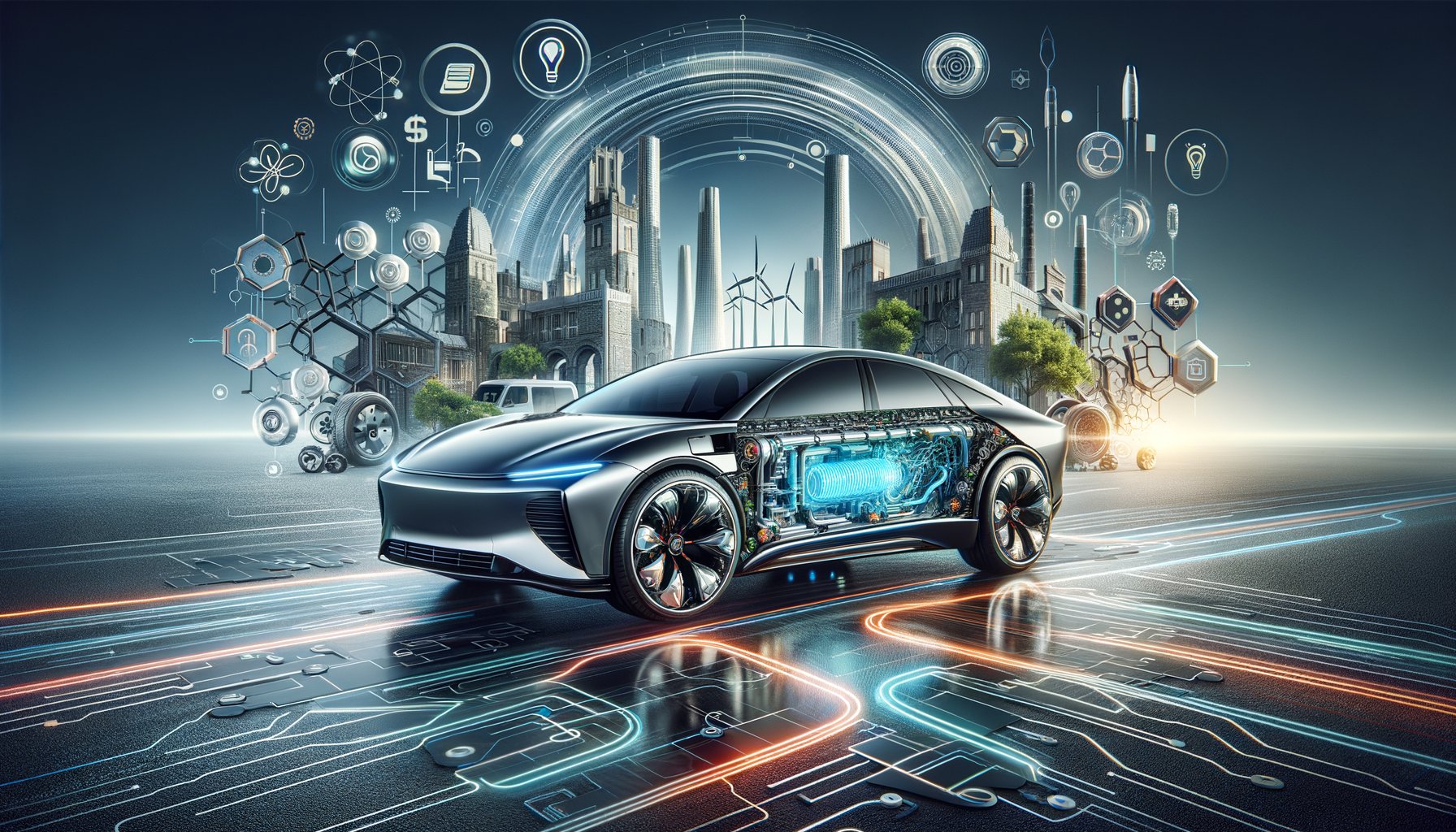Physical Address
304 North Cardinal St.
Dorchester Center, MA 02124
Physical Address
304 North Cardinal St.
Dorchester Center, MA 02124

As we navigate the 21st century, a profound shift is taking place in the automotive industry. This transformation is driven by breakthroughs in fuel cell technology that promise to revolutionise how our cars are powered. A fuel cell, simply put, is an electrochemical device that converts chemical energy from a fuel into electricity through an electrochemical reaction of hydrogen-containing fuel with oxygen or another oxidising agent.
Fuel cells have been around since the early 19th century but it’s only recently that they have gained significant attention in the automotive world. The main reason for this renewed interest lies in their potential to address some of the most pressing environmental challenges facing our planet today.
Fuel cells offer several distinct advantages over traditional internal combustion engines and even over more recent electric vehicle technologies. Firstly, they produce zero harmful emissions – only water vapour. This makes them an attractive proposition in a world increasingly concerned about air quality and climate change.
Secondly, they are highly efficient. Unlike conventional vehicles which waste much of their energy as heat, fuel cells convert a higher percentage of their energy into useful power. This efficiency translates into longer driving ranges and shorter refuelling times compared to battery-powered electric vehicles.
The most common type of fuel cell used in cars today is the proton exchange membrane (PEM) cell which uses hydrogen as its primary fuel source. Hydrogen is abundant and can be produced from various sources including natural gas, coal, biomass and even water using electrolysis.
Despite its benefits however, hydrogen presents several challenges as a vehicle fuel. It must be stored under high pressure or at very low temperatures, both of which present safety and infrastructure issues. Furthermore, most hydrogen today is produced from fossil fuels which somewhat undermines its environmental credentials.
Despite these challenges, significant progress has been made in recent years to improve the efficiency, durability and cost-effectiveness of fuel cell technology.
A major breakthrough came with the development of new catalyst materials that can operate at higher temperatures and under more acidic conditions. This has increased the performance and lifespan of fuel cells while reducing their cost.
Another important advancement was the invention of novel hydrogen storage methods. These include metal hydrides and carbon nanotubes which can store hydrogen at much lower pressures than conventional tanks. This not only improves safety but also increases vehicle range.
While there are still many hurdles to overcome, the future looks promising for fuel cell cars. Major car manufacturers like Toyota, Honda and Hyundai already have fuel cell vehicles on the market while others such as GM and BMW are investing heavily in this technology.
Moreover, governments around the world are supporting fuel cell research through funding initiatives and infrastructure development. For instance, Japan aims to become a ‘hydrogen society’ by 2050 with hydrogen playing a major role in its energy mix.
In conclusion, as we strive for a sustainable future, fuel cell technology offers a compelling alternative to traditional combustion engines. With continued research and development, it’s likely that we’ll see more fuel cell cars on our roads in the coming years.